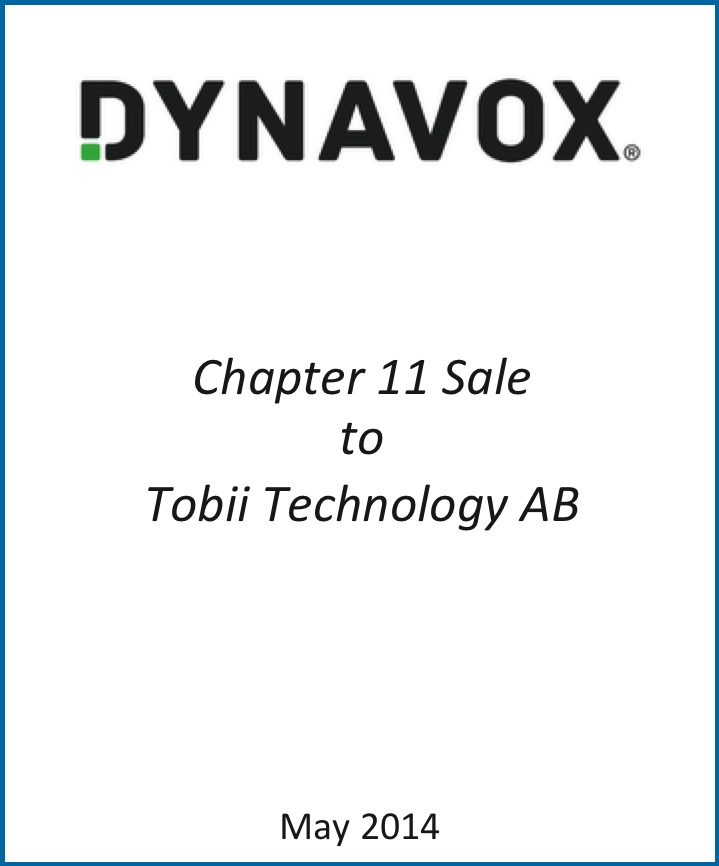Cassel Salpeter & Co. represents DynaVox in section 363 sale
To view the original article, click here.
June 19, 2014
Cassel Salpeter & Co. represented DynaVox Inc., debtor-in-possession, in connection with a Section 363 sale transaction approved by the Delaware Bankruptcy Court to Tobii Technology AB, a Swedish technology company with offices worldwide. In a competitive auction on May 21, Tobii was the successful bidder for substantially all of the operating assets of DynaVox with its $18 million bid. The transaction closed on May 23.
Tobii expects the purchase of DynaVox to solidify the position of its assistive technology division as the international leader in the augmentative and alternative communication and accessibility markets. DynaVox, with headquarters in Pittsburgh, provides speech-generating devices and symbol-adapted special education software to help people overcome speech, language, and learning challenges.
Cassel Salpeter advised DynaVox in completing the sale in an expedited three-week time frame and provided assistance throughout all phases of the sales process, due diligence, and auction.
“We are pleased to have successfully represented our client in this complex sale in a tight timeframe,” said James Cassel, co-founder and chairman of Cassel Salpeter, who led the assignment along with Philip Cassel, an associate with the firm.
Added DynaVox’s bankruptcy counsel Paul J. Battista: “The sale was a great success in that it assures all creditors will be paid in full and money will be available to be distributed to shareholders. Jim and his team jumped into the process, came up to speed quickly and were invaluable in helping generate this great result.”
Tobii is noted as a global market leader in eye tracking and a pioneer in gaze interaction. Its products are widely used for communications by people with disabilities. They are also used within the scientific community and in commercial market research and usability studies.
The debtors were represented by Paul Battista and Heather Harmon, partners with Genovese Joblove & Battista, P.A., and William Chipman, Jr., partner, and Mark Olivere, counsel, with Cousins Chipman & Brown, LLP.
Cassel Salpeter & Co. is an independent investment banking firm that provides advice to middle-market and emerging growth companies in the U.S. and worldwide. Together, the firm’s professionals have more than 50 years of experience providing private and public companies with a broad spectrum of investment banking and financial advisory services, including: mergers and acquisitions; equity and debt capital raises; fairness and solvency opinions; valuations; and restructurings, such as 363 sales and plans of reorganization.









